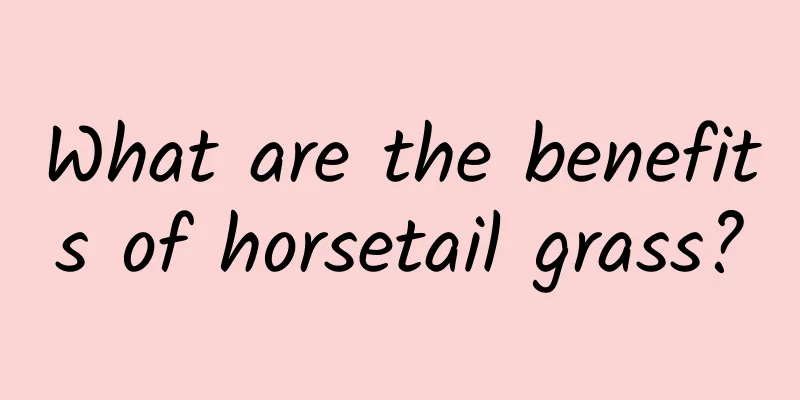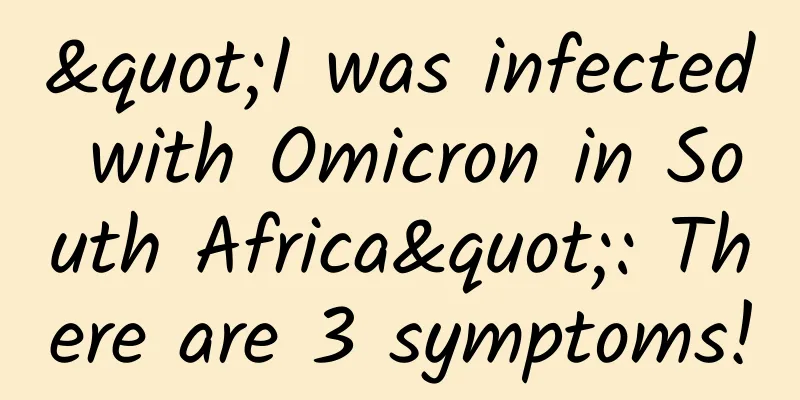What are the benefits of horsetail grass?

|
Many people may not know much about horsetail grass. In medicine, it is also called pen tube grass because of its tube shape. Horsetail grass has certain medicinal value and has certain effects on hemostasis and anti-inflammation. Chinese medicine has a certain regulating effect on our body. So what are the effects of horsetail grass? The silicates and tannins contained in horsetail have astringent effects, thus having anti-inflammatory and hemostatic effects on the parts of contact. The whole plant of the same genus E. Arvense L. has a diuretic effect; it has been used clinically to treat diabetes, but animal experiments have not confirmed this. Livestock eating spathiphyllum and spathiphyllum plants may cause poisoning. Symptoms include weakness in the limbs, ataxia, difficulty turning around, tremors and muscle rigidity when the livestock are active, weak and frequent pulse, cold limbs, and blood chemical analysis shows vitamin B deficiency. Taking large amounts of vitamin B has a detoxifying effect. 1. Effects on cardiovascular system: The alcohol extract of Herba Cibotii can increase the coronary flow of isolated guinea pig hearts. Intravenous injection of 0.2 ml/kg (100% extract) has a certain antagonistic and buffering effect on the T wave increase and heart rate slowing caused by posterior pituitary hormone. Intraperitoneal injection of 10-15g/kg or intraduodenal administration of 20g/kg of the alcohol extract of Pennisetum truncatum has a lasting antihypertensive effect on anesthetized cats. There is a certain correlation between the intensity and maintenance time of antihypertensive effect and the dosage. It can also counteract the vasoconstriction effect of histamine and still has a hypotensive effect on cats with severed spinal cords, so it is believed that its hypotensive site is peripheral. It has a significant dilating effect on isolated blood vessels of rabbits. 2. Other effects: Ferulic acid has the effect of inhibiting platelet aggregation and release. It has sedative and anticonvulsant effects in animal experiments. Its median lethal dose (mg/kg) is 946 for intraperitoneal injection in mice and 3000 for oral gavage in rats. Toxicity manifests itself as ataxia, muscle rigidity, and cold extremities. Blood analysis showed vitamin B12 deficiency, which was restored to normal with large amounts of vitamin B12 treatment. Indications: Clears the liver and improves eyesight; stops bleeding; promotes diuresis and relieves stranguria; treats wind-heat cold; cough; red and swollen eyes; cloudiness; epistaxis; hematuria; intestinal bleeding; stranguria; jaundice; leucorrhea; fractures. The above is an introduction to the effects of horsetail grass. I believe everyone should have a basic understanding of horsetail grass now. Horsetail grass has certain value and can help us treat a variety of diseases. Although horsetail grass itself is poisonous, everyone must take it according to the dosage when using it for treatment. |
<<: What are the effects of Ligustrum lucidum
>>: What are the effects of mistletoe
Recommend
When a jellyfish is stretched straight, it is taller than a 10-story building? You read that right, it is a jellyfish
Have you ever seen a jellyfish taller than a ten-...
FedEx: 2022 e-commerce megatrends overview report
The Overview shows that in the next five years, t...
The efficacy and function of blue flower flat bamboo
As people's living standards continue to impr...
A strange "two-sided" star was discovered 1,300 light years away, one side is hydrogen and the other side is helium
An artist's impression of the newly discovere...
Will eating these things often really make you ugly? Beware of these 8 types of food
Someone once complained online: "Why do I fi...
Interesting fact: Was steamed bun invented by Zhuge Liang?
Steamed buns were invented by Zhuge Liang In the ...
The efficacy and function of two-leaf crane grass
Many people are not very clear about the effects ...
Do you need to sleep in separate rooms if you have this disease? Huo Qigang often wakes up in the middle of the night because of this disease. Doctors in Zhejiang Province have seen at least 10 patients in half a day. Severe cases may be life-threatening.
Recently, 43-year-old Huo Qigang participated in ...
What are warming and tonic Chinese medicines?
Warm tonic Chinese medicine is quite common in ou...
I don’t want to repeat it! E-cigarettes are really not the “white moonlight” of smokers…
Everyone knows that smoking is harmful to health,...
The efficacy and function of eucalyptus globulus
As for Eucalyptus globulus, I think some people m...
The efficacy and function of toad skin
Toad skin is a traditional Chinese medicine. Do y...
The efficacy and function of Houtazi
Hou'erzi is a common medicinal material in tr...




![The efficacy and function of Fritillaria cirrhosa[picture]](/upload/images/67ca5eab6e247.webp)




